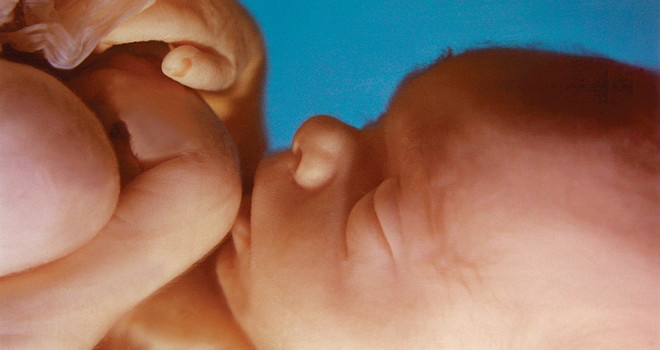An Iowa Senate committee approved on a narrow deadline a bill to ban abortions after 20 weeks when strong scientific evidence indicates babies can feel pain.
State Senators passed the bill in a 9-3 bipartisan vote Thursday, moving it to the full state Senate for consideration, according to the Associated Press.
The bill, Iowa Senate File 53, would prohibit abortions after 20 weeks when strong scientific evidence indicates unborn babies can feel pain. Exceptions for fatal fetal anomalies would be allowed up to 24 weeks.
Jenifer Bowen, a spokeswoman for Iowa Right to Life, told the Des Moines Register that she is glad the bill is moving forward. With similar laws in 16 other states, Bowen said she does not expect abortion activists to challenge Iowa’s if it becomes law.
State Sen. Mark Costello, R-Imogene, told the newspaper that Iowa lawmakers want to save lives from abortion, as well as work to prevent unplanned pregnancies.
“I think this does have the potential to save lives. I always like to say there are two lives involved here,” Costello said.
Iowa lawmakers failed to advance a similar House bill on a short legislative deadline this week, according to the report.
Currently, 16 states have pain-capable unborn child protection laws in effect, Kentucky being the most recent. Other states are considering similar bills.
Together, these laws potentially are saving thousands of babies from painful, late-term abortions. There were at least 5,770 late-term abortions at or after 21 weeks of pregnancy in 2013 in the U.S., according to the Centers for Disease Control. Another approximate 8,150 abortions took place between 18 weeks and 20 weeks, the CDC reports.
SUPPORT LIFENEWS! If you like this pro-life article, please help LifeNews.com with a donation!
Though abortion advocates deny the science of fetal pain, researchers have fully established fetal pain at 20 weeks or earlier. Dr. Steven Zielinski, an internal medicine physician from Oregon, is one of the leading researchers into it. He first published reports in the 1980s to validate research showing evidence for unborn pain.
At 20 weeks, the unborn child has all the parts in place – the pain receptors, spinal cord, nerve tracts, and thalamus – needed for transmitting and feeling pain. The unborn child responds to touch as early as week 6; and by week 18, pain receptors have appeared throughout the child’s body.
“The thalamus, which is the center of pain consciousness in the brain, develops during weeks 8 through 16, and the nerve tracts connecting the spinal cord and thalamus are themselves in place by week 20,” said Randy O’Bannon of National Right to Life. “Like infants, the unborn child cannot speak and describe his or her pain experience, but there are the usual physiological indicators that indicate pain awareness.”
“As early as 18 weeks, an unborn child injected with a needle releases stress hormones, just as adults do when experiencing pain. Hormone levels in those babies decrease when pain-relievers are supplied,” he added. “Studies indicate that anencephalic infants, whose cortex is severely reduced if not altogether absent, experience pain as long as other neurological structures are functioning.”
Dr. Colleen A. Malloy, a professor of neonatology at Northwestern University’s Feinberg School of Medicine, told a U.S. Senate committee last year that “anesthesiologists, and surgeons use pain medication” for unborn babies at the 20 week stage, “because it’s supported by the literature completely.”
“I could never imagine subjecting my tiny patients to a horrific procedure such as those that involve limb detachment or cardiac injection,” Malloy added.








